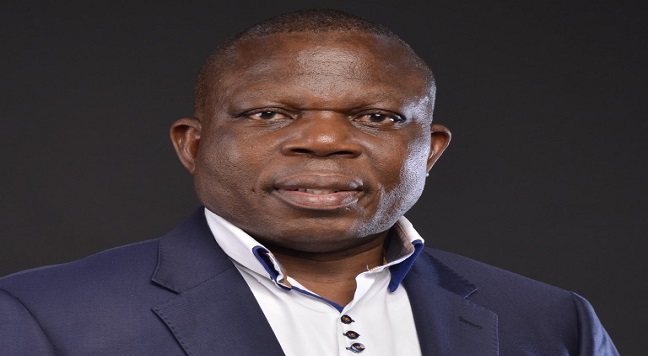News
Report Finds Three-in-10 Adults in Emerging Economies as Not Having Phone

As ownership of mobile phones, especially smartphones, spreads rapidly across the globe, an average of three-in-10 adults in emerging economies still do not own a phone.
This is one of the key findings of a Pew Research Center survey conducted among 28 122 adults in 11 emerging economies, including Kenya. It is part of a series of reports about the mobile landscape in emerging economies.
The report found there are still notable numbers of people who do not own or even use someone else’s mobile phone, with the mobile divide most pronounced in Venezuela (32%), India (30%) and the Philippines (27%), countries where about three-in-10 adults do not own a mobile phone.
In SA, 5% of surveyed respondents do not have or share a mobile phone, while Tunisia has 4%, Lebanon 9%, Kenya 3% and Jordan 3%.
The report found a median of 7% of polled people borrow or share phones with others.
Among non-mobile phone users, a median of 51% across eight countries say the cost of a phone is the reason they do not have one, with non-users in Venezuela (89%) and Tunisia (71%) topping the list.
A median of 34% of non-mobile users report that data costs are a reason, notes Pew.
“The spread of mobile phones brings a variety of benefits to users in emerging economies, and they can clearly spell out what appeals to them about the arrival of a phone in their lives,” explains Laura Silver, senior researcher at Pew Research Center.
“Still, our survey shows these devices bring new challenges and headaches to users at the same time they open up new divisions in their societies. It turns out that digital divides take several forms in these countries.”
According to a report by research firm Statista, today about 20 million to 22 million South Africans use a smartphone, which accounts for about one-third of the country’s population.
The non-users are divided over whether they would like to own a mobile phone in the future: Venezuelan non-users stand out for their keen interest in acquiring a mobile phone; 86% of mobile phone non-users in Venezuela say they would like to get a phone in the future.
Elsewhere, these numbers vary markedly, from around half or more desiring a mobile phone in SA (65%), Colombia (61%) and Tunisia (52%), to fewer than half in Mexico (41%), the Philippines (35%), India (31%) and Lebanon (9%).
At the same time, the Pew research shows mobile divides also exist among those who own phones. A median of 46% of respondents say they frequently or occasionally have difficulties getting reliable phone connections, 37% say it can be a challenge to pay for their phones, and 33% report finding places to charge their phones is a problem at least occasionally.
In some countries, mobile owners’ challenges are particularly striking. In Lebanon, for example, 66% of owners say they avoid doing things with their phones because those activities use too much data. In Jordan, nearly half (48%) report having trouble paying for their phone, while in Tunisia, four-in-10 (40%) say it can be a challenge to find places to recharge their phones.
Pew researchers also found that in some countries, issues of technological literacy are particularly pronounced. For example, around a quarter of Indians (26%) say the primary reason they share a phone is because it is too complicated to use, followed by Mexicans (11%) and Filipinos (10%).
“Beyond those concerns, there are other issues that can disrupt life for some phone users and sharers. Around three-quarters or more of mobile phone owners in every country except India report concerns about identity theft, and around nine-in-10 or more in Mexico (95%), Colombia (94%), Tunisia (90%), SA (89%) and the Philippines (89%) say they are at least somewhat concerned about the security issue,” notes the report.
News
New Horizons Invests N50m to Empower Almajiris with Skills

New Horizons Nigeria has launched a N50 million initiative aimed at transforming 21 Almajiri children into skilled computer technicians within 90 days, to tackle youth unemployment and harness human potential.

The Almajiri-to-Tech programme, officially launched in Abuja on Monday, provides participants with full training, meals, clothing, tools, and logistics support, all fully funded.
Speaking at the launch, the Chief Executive Officer of New Horizons, Tim Akano, said the programme represents a new journey in the history of Nigeria by restoring the original purpose of the Almajiri system, which he described as “children sent out to seek knowledge.”
“The word Almajiri comes from an Arabic term meaning emigrant and seeker of knowledge. Historically, children were sent to learn morals, responsibility, and skills to add value to society,” Akano said.
He added that the disruption of this system during colonial times forced many children onto the streets, a challenge that persists today.
Akano highlighted the urgency of addressing the Almajiri issue, noting that there are an estimated 15 million Almajiris in the country, with a population growth rate of around three per cent annually.
“If we do not solve this problem as a country, we are sitting on a time bomb,” he warned.
According to him, the programme focuses on hands-on technical skills rather than theory. Trainees will learn to repair mobile phones, laptops, televisions, radios, standing fans, and other electronic devices, as well as build inverter batteries using recycled electronic waste.
“We are not teaching theory. We are teaching practical skills you can use to earn a living,” Akano said, stressing that the programme will not interfere with the participants’ Quranic education.
“We are still going to allow you, within the period of learning. Your learning computer here is not stopping your Quranic education.
“You still have time within our space here. Whenever you want to go and pray, you can pray, then come back to class,” the CEO stressed.
He added that participants will also receive daily meals, water, T-shirts identifying them as technicians-in-training, and access to all necessary tools and equipment throughout the 90-day programme.
Akano said the initiative is part of a larger mission by New Horizons Nigeria, which has spent the past 21 years training about 100,000 Nigerians annually in IT and related skills.
He said the new programme aims to “take human genius off the streets and convert it into human capital, enabling these youths to contribute meaningfully to the economy.”
He added that equipping Almajiris with skills could add 15 million people to Nigeria’s workforce and potentially increase the country’s GDP by as much as $20 billion, stressing that productivity depends on practical skills and opportunity.
“Everything that can be taught can be learned. If someone can memorize the Quran cover to cover, there is nothing that cannot be done. What they lack is information, opportunity, and infrastructure, and we are providing all of that,” Akano said.
Akano also stressed that the initiative is designed to inspire other organizations and government agencies to replicate similar programmes across the country.
“This is not just about 21 children; it is about showing Nigeria what is possible when resources meet intention and planning.
“If we succeed in empowering these Almajiris, we demonstrate that the country can turn social challenges into economic opportunities. It’s a blueprint for Nigeria’s future,” he said, noting that the initiative combines social reform, technical education, and economic empowerment.
Also speaking, one of the trainees, Fatima Umar, appreciated the organisers and promised to maximise the opportunity.
“We’ll make you proud of us. We have nothing to say here but to thank and appreciate you. May Almighty Allah continue to guide and protect you,” Umar said.
News
IMF Upgrades Nigeria’s 2026 Growth Projection to 4.4%

International Monetary Fund has upgraded Nigeria’s 2026 economic growth projection to 4.4 per cent, reflecting improved macroeconomic stability and sustained reforms.

IMF
The January 2026 World Economic Outlook Update forecasts Nigeria’s growth trajectory at 4.1 per cent in 2024, 4.2 per cent in 2025, and 4.4 per cent in 2026—a 0.2 percentage point increase from the October 2025 estimate.
This aligns with sub-Saharan Africa’s projected 4.6 per cent expansion in 2026 and 2027, driven by regional stabilisation efforts.
Globally, the IMF anticipates 3.3 per cent growth amid resilient conditions tempered by trade policy shifts and technology investments. For Nigeria, declining energy prices—expected to fall seven per cent due to weak demand—pose risks, though OPEC+ coordination and China’s stockpiling provide support.
Despite the optimism, downside risks persist from Middle East and Ukraine tensions, protectionism, high debt, and fiscal deficits. The Fund recommends rebuilding fiscal buffers, ensuring central bank independence, and limiting temporary fiscal measures to maintain stability.
Nigeria’s success hinges on consistent reforms and resilience against domestic and global shocks, the IMF concluded.
News
Nigeria’s Crude Output Falls to 1.486mbpd in November – OPEC

Organisation of Petroleum Exporting Countries (OPEC) reports that Nigeria’s crude oil production, excluding condensate, dropped by 0.7 per cent to 1.486 million barrels per day (mbpd) in November 2025 from 1.496 mbpd in October.

OPEC
The figure, drawn from secondary sources in OPEC’s December 2025 Monthly Oil Market Report, fell short of Nigeria’s 1.5 mbpd quota. Direct communication data showed output at 1.436 mbpd, up from October’s 1.401 mbpd, but still below target.
Nigeria produces around 196,028 bpd of condensate, excluded from quota calculations per Nigerian Upstream Petroleum Regulatory Commission figures. Year-on-year, November’s output marked a slight gain over 1.417 mbpd in November 2024.
Expert Cites Insecurity, Governance Gaps
Petroleum economics expert Wumi Iledare described the quota miss as unsurprising, blaming persistent insecurity, an ageing oil basin lacking new finds, and unoffered hydrocarbon blocks. Governance shortcomings and policy uncertainty further erode investor confidence, he noted.
Selective implementation of the Petroleum Industry Act worsens the situation, with Nigeria needing a single authoritative leader for the sector rather than multiple proxies, Mr Iledare stressed. The country has struggled to consistently hit OPEC targets for years.

 E-Financial3 days ago
E-Financial3 days agoHere Are Nigerian Banks That Have Secured Their Licences

 E-Financial3 days ago
E-Financial3 days agoZenith Bank Top Nigerian Bank Pick Ahead of GTCO, AccessCorp

 Telecom3 days ago
Telecom3 days agoMTN CEO Toriola Hails Nigeria’s Telecom Transformation at MIPAD

 News3 days ago
News3 days agoICPC Charges Ozekhome with Forgery, Corruption Over London Property

 E-Financial3 days ago
E-Financial3 days agoNigeria Processed $92.1Bn Crypto Transactions in 12 Months — PwC

 E-Financial3 days ago
E-Financial3 days agoHow Crypto Criminals Stole $700m from People – often Using Age-Old Tricks

 General News2 days ago
General News2 days agoCybersecurity Firm Detects a Wave of Crypto Phishing Following BlockFi Bankruptcy

 Telecom3 days ago
Telecom3 days agoLebara Launches Agent Registration Portal















